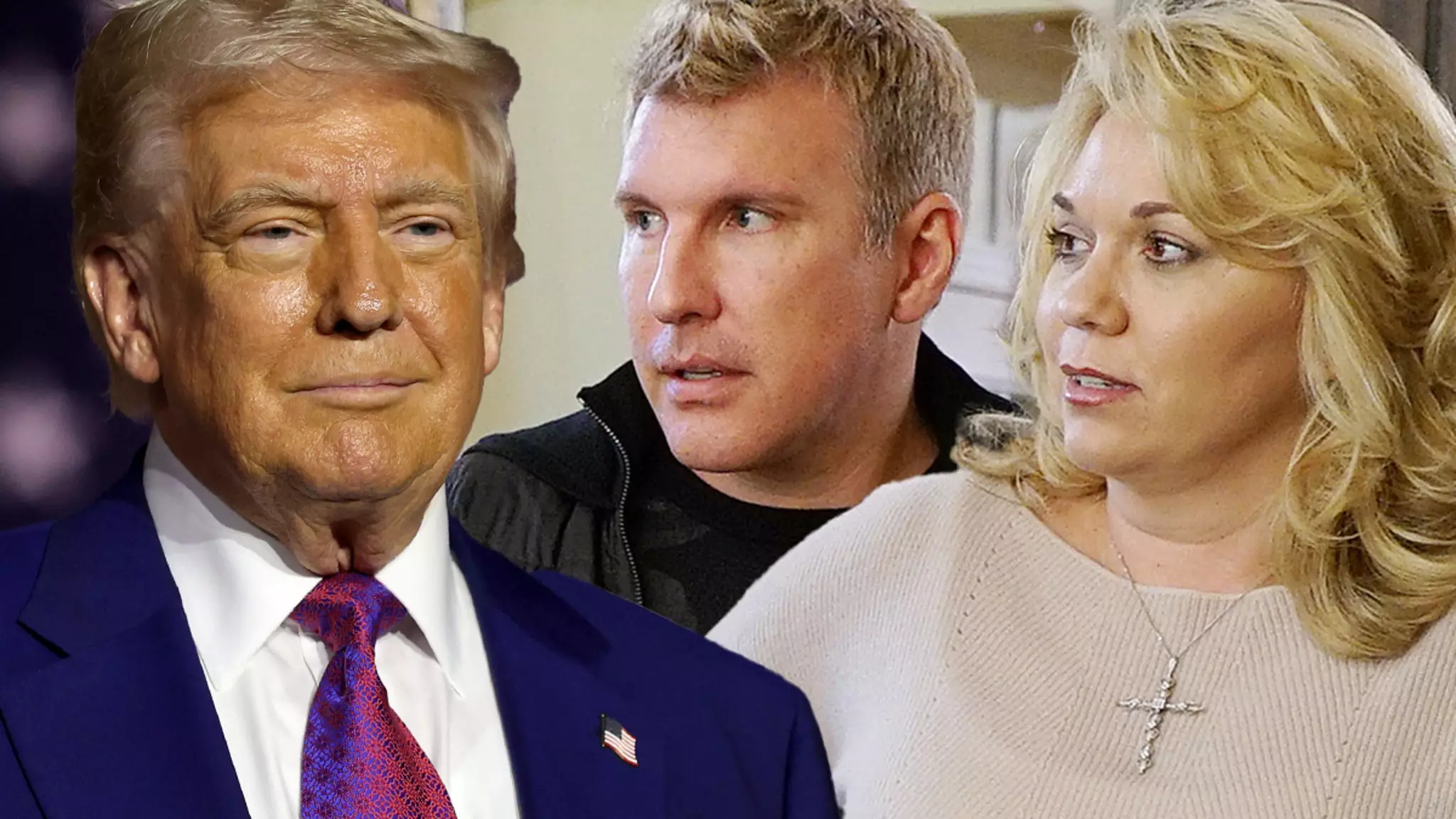The recent pardoning of reality TV stars Todd and Julie Chrisley by former President Trump has sparked a whirlwind of discussions surrounding justice, privilege, and the potential implications of political favoritism. The couple, previously sentenced to lengthy prison terms for charges including bank fraud and tax evasion, are now navigating a landscape brimming with both opportunity and controversy. While many may celebrate this turn of events for the Chrisleys, we must critically examine what this means for the legal system and society at large.
The essence of democracy hinges on the fairness and impartiality of its judicial system. When political figures intervene in such matters—especially with the allure of celebrity status—it raises questions about the integrity of legal proceedings. The Chrisleys, who were originally convicted in 2019, have consistently claimed that their trial was marred by biases stemming from their political affiliations and celebrity lifestyles. Their daughter Savannah’s remarks at the Republican National Convention reflect a narrative that suggests their conviction was less about legality and more about their visibility in an increasingly partisan landscape.
The Implications of a Presidential Pardon
President Trump’s decision to pardon the Chrisleys underscores a crucial aspect of federal law: the cancellation of any unpaid restitution. With the couple reportedly having paid back only a portion of the over $17 million demanded, the pardon effectively absolves them of their financial responsibility to the victims of their crimes. This creates a striking dichotomy between victims who sought justice and a couple who, through political connections, have been granted a ‘get-out-of-jail-free’ card.
However, paradoxically, federal law stipulates that if restitution has been paid, the recipients may be mandated to return those funds once a pardon is granted. This intricate legal web reveals an unsettling truth about the justice system: the possibility exists that victims may inadvertently find themselves paying the price for the Chrisleys’ alleged misdeeds. This raises significant ethical questions about the role of a presidential pardon—should it serve as a mechanism for rehabilitation, or does it simply reinforce a notion of privilege over accountability?
The Role of Celebrity in the Justice System
The Chrisley saga invites us to scrutinize the broader implications of celebrity culture in the judicial process. In a world where visibility often equates to influence, the couple’s new-found freedom amplifies the conversation surrounding systemic inequalities that enable certain individuals to transcend legal outcomes. Their case may be an outlier, but it illustrates the troubling reality of how fame and fortune can intercede in matters of justice.
As Americans, we find ourselves at a crossroads, caught between celebrating a redemption narrative and acknowledging the uncomfortable truths about power dynamics within our nation. While the Chrisleys can now bask in the glow of their freedom, we must not lose sight of the potential repercussions this case may have on the trust we place in our legal institutions and the societal structures meant to ensure fairness for all.

